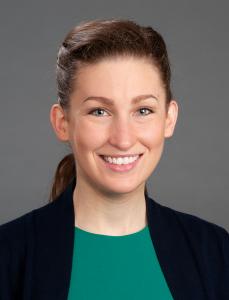New Patient Services

Prenatal Visits
Please call our office to schedule a “one-on-one” meeting with one of our physicians. We will do our best to answer all of your questions when selecting a pediatrician.
New Patients
If you are looking for a new pediatrician or have just relocated to the area, call our office to inquire about becoming a patient. Our staff can assist you with many questions you may have on how to establish care, including how to request your records to be transferred to our office prior to your child’s first appointment.


Insurances Accepted
Partial List of Insurances Accepted*:
~Aetna
~NC Medicaid
~Blue Cross/Blue Shield (not Blue local)
~CIGNA
~Great West
~MedCost
~TriCare-Standard (Not Prime)
~United Healthcare
We accept many other insurance carriers. Please call our office to see if our practice and/or your child’s doctor accept your insurance plan prior to receiving services.
We will be happy to assist you. Also, with insurance changes this day in time, it is a good measure to call you insurance carrier too and verify we are in network with them. Our participation with the health plans and/or companies listed above is subject to change.
Many insurance plans require payment of your copay at the time of the appointment. Other plans have deductibles and/or coinsurance. Please be familiar with your insurance plan.
All copays are to be paid prior to leaving the office at the time of your visit. We accept credit cards, debit cards, checks and cash. Copayments can not be billed to you.
If your child is uninsured, we would be happy to see them as a Self-Pay patient.
Established Patient Services
Preventative Care
Your child needs periodic health exams (“check-ups”) to monitor growth, development, and general health. At these visits, immunizations will be offered to protect your child from childhood diseases. We strongly encourage the immunization schedule recommended by the American Academy of Pediatrics.


Dental Health
At Well Child visits we can prescribe oral fluoride supplementation starting at age 6 months for children whose water supply is deficient in fluoride and can also apply fluoride varnish to the primary teeth of all infants and children starting at the age of primary tooth eruption.
Sick Visits
We know as a parent getting care for your child when they are sick is a number one priority. Therefore, we make every effort to schedule same day sick appointments when needed. If you are unsure if your child needs to be seen, we have a nurse available to speak with you both during and after office hours.


Teleheath/Video Visits for Established Patients
Call our triage line to speak to a nurse who will determine if a telehealth visit is appropriate or not . Although most insurance covers these, you should check with your insurance to verify these visits are covered under your policy.
24 hour / 7 day Per Week Accessibility
During normal office hours we have staff available to answer your questions and schedule office visits, including Same Day Sick Appointments. For medical advice, we have nursing staff and providers available to answer your questions. For your after-hour needs we provide a service, through Pedicallcare, free of charge to you. Your calls will be triaged by a Registered Nurse who has access to the physician on call to help meet your needs. They can be reached at 336-729-2410.


Preschool, School, College Entrance, and Sports Physicals
Regular health exams are an important part of our process of providing care to your child. We provide routine check-ups that will meet your needs for back-to-school and sports physicals.
Health Screening for International Adoptees
We provide screening tests per AAP recommendations for those families adopting a child.


Diagnosis and Treatment of Children with Chronic Diseases
We work directly with specialists in the area to ensure your child has the necessary treatment and care.
ADHD Medication Management
Patients with a new diagnosis of ADHD are required to be seen within 30 days after their initial visit. After the initial visit, patients are required to be seen every 3 months to monitor weight and blood pressure. School progress and how the medication is working are discussed. Providers cannot refill medications unless the patient has a yearly well child physical. We need at least a 48 hour notice for all ADHD medication refills. If a patient has been off medication for any reason and would like to restart medication, an ADHD follow-up visit is required within the past 3 months before prescriptions can be written.


Immunizations
We believe it is very important for your child to get regularly scheduled vaccines as outlined by the ACIP and approved by the American Academy of Pediatrics.
Prescriptions
We use electronic prescribing for all eligible prescriptions. Electronic prescribing offers value through eliminating illegible handwriting, documenting medications, evaluating for formulary compliance, and assessing and alerting for allergies and/or interactions.

Lactation Consultation
Assisting mothers in their breastfeeding journey, in a comfortable office environment, with a certified lactation consultant.


Advanced Care Team
Advanced Care Team works with your existing health-care providers to enhance the care your child is already receiving to make sure it reflects the values and preferences of your child and your family, and to maximize quality of life and comfort for your child
“Comprehensive obesity treatment” – This may include nutrition support, physical activity treatment, behavioral therapy, and medications (including Wegovy).
Weight Management
There is more evidence than ever that obesity treatment in children is safe and effective.

Dr. Sarah Robinson

Dr. Robinson achieved her undergraduate and medical degrees at University of Florida. She completed her residency at Le Bonheur Children’s Hospital and St. Jude Children’s Research Hospital in Memphis, TN. Board-certified in general pediatrics, she enjoys working with pediatric patients from birth through early adulthood.
Dr. Robinson serves on the American Headache Society’s Advisory Board for Headache in Primary Care and is a member of the AAP. She offers body positive and holistic weight management, which combines mental health screening, guidance through lifestyle change, and can include prescription medications such as Wegovy.
More information on Child & Adolescent obesity:
More than 14.4 million U.S. children and teens live with a common chronic disease that has been stigmatized for years and is associated with serious short and long-term health concerns when left untreated, including cardiovascular diseases and type 2 diabetes. The disease is obesity, and it can be treated successfully with the recognition that complex genetic, physiologic, socioeconomic, and environmental factors are at play, according to the American Academy of Pediatrics
The AAP has published its first comprehensive guidance in 15 years that highlights more evidence than ever that obesity treatment is safe and effective. Evidence-based recommendations on medical care for those age 2 and older are included within a “Clinical Practice Guideline for the Evaluation and Treatment of Children and Adolescents With Obesity,” published in the February 2023 Pediatrics (published online Jan. 9). The guideline is accompanied by an executive summary and two technical reports, “Appraisal of Clinical Care Practices for Child Obesity Treatment. Part I: Interventions,” and “Appraisal of Clinical Care Practices for Child Obesity Treatment. Part II: Comorbidities.”
“Weight is a sensitive topic for most of us, and children and teens are especially aware of the harsh and unfair stigma that comes with being affected by it,” said Sarah Hampl, MD, a lead author of the guideline, created by a multidisciplinary group of experts in various fields, along with primary care providers and a family representative.
“Research tells us that we need to take a close look at families — where they live, their access to nutritious food, health care and opportunities for physical activity–as well as other factors that are associated with health, quality-of- life outcomes and risks. Our kids need the medical support, understanding and resources we can provide within a treatment plan that involves the whole family,” said Dr. Hampl, chair of the Clinical Practice Guideline Subcommittee on Obesity.
The AAP guideline contains key action statements, which represent evidence-based recommendations for evaluating and treating children with overweight and obesity and related health concerns. These recommendations include motivational interviewing, intensive health behavior and lifestyle treatment, pharmacotherapy and metabolic and bariatric surgery. The approach considers the child’s health status, family system, community context, and resources.
The guideline discusses increased risks for children with special health care needs, as well as inequities that promote obesity in childhood, such as the marketing of unhealthy food, low socioeconomic status and household food insecurity. The role of structural racism has played in obesity prevalence is also discussed.
Overweight is defined as a body mass index (BMI) at or above the 85th percentile and below the 95th percentile for children and teens of the same age and sex. Obesity is defined as a BMI at or above the 95th percentile for children and teens of the same age and sex.
The guideline does not discuss obesity prevention, which will be addressed in another forthcoming AAP policy statement. The AAP describes the role of a primary care physician – or medical home — in overseeing intensive and long-term care strategies, ongoing medical monitoring, and treatment of youth with obesity.
“There is no evidence that ‘watchful waiting’ or delayed treatment is appropriate for children with obesity,” said Sandra Hassink, MD, an author of the guideline and vice chair of the Clinical Practice Guideline Subcommittee on Obesity.
“The goal is to help patients make changes in lifestyle, behaviors or environment in a way that is sustainable and involves families in decision-making at every step of the way.”
Key action statements guide physicians on how to evaluate children and teens for obesity. The AAP also recommends:
- Comprehensive obesity treatment may include nutrition support, physical activity treatment, behavioral therapy, pharmacotherapy, and metabolic and bariatric surgery.
- Intensive health behavior and lifestyle treatment (IHBLT), while challenging to deliver and not universally available, is the most effective known behavioral treatment for child obesity. The most effective treatments include 26 or more hours of face-to-face, family-based, multicomponent treatment over a 3- to 12-month period.
- Evidence-based treatment delivered by trained health care professionals with active parent or caregiver involvement has no evidence of harm and can result in less disordered eating.
- Physicians should offer adolescents ages 12 years and older with obesity weight loss pharmacotherapy, according to medication indications, risks, and benefits, as an adjunct to health behavior and lifestyle treatment.
- Teens age 13 and older with severe obesity (BMI ≥120% of the 95th percentile for age and sex) should be evaluated for metabolic and bariatric surgery.
The American Academy of Pediatrics is an organization of 67,000 primary care pediatricians, pediatric medical subspecialists and pediatric surgical specialists dedicated to the health, safety and well-being of infants, children, adolescents and young adults.
